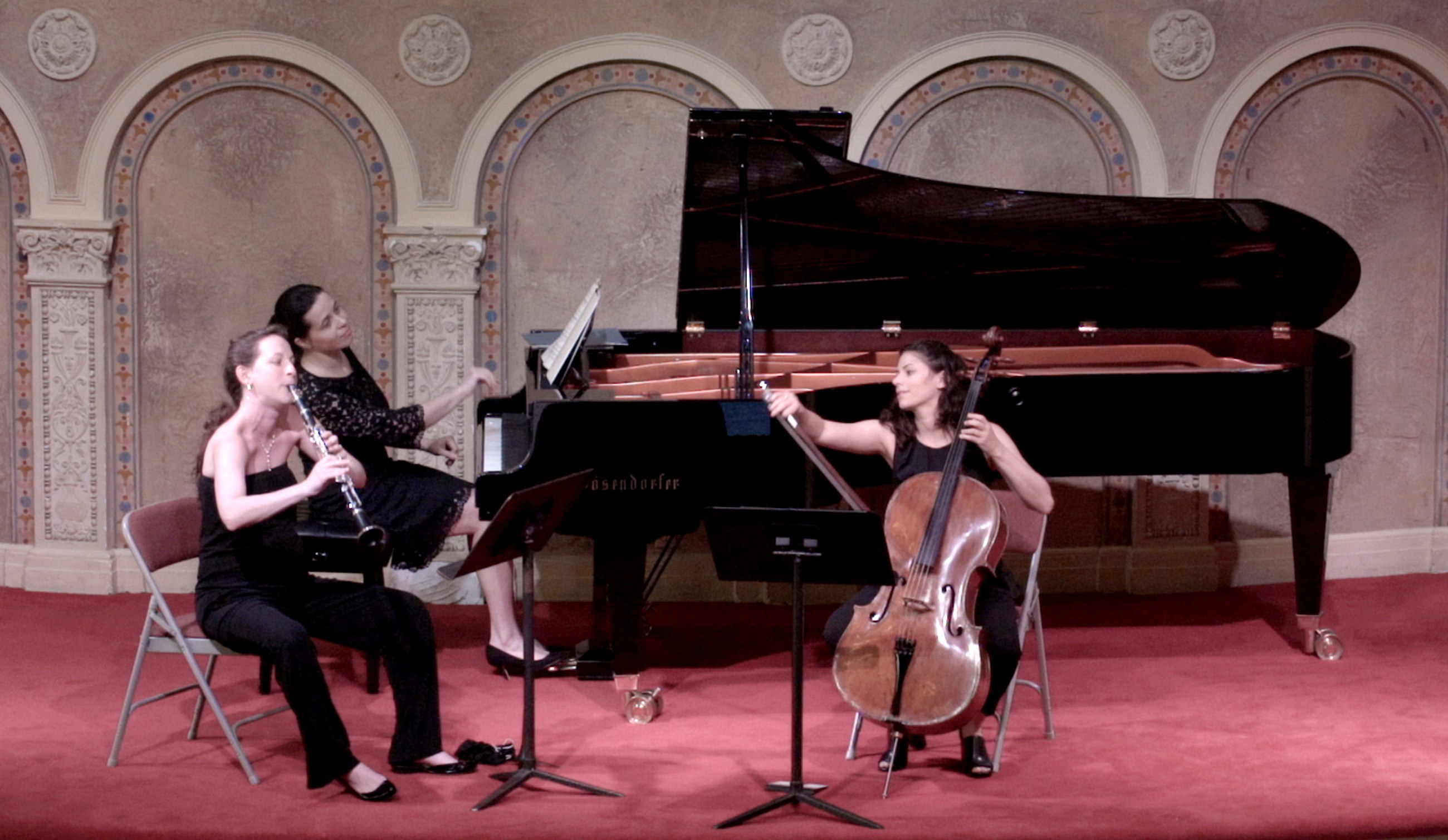
Mainly Mozart Festival concert brought refreshing mid-summer concert to Miami
The penultimate chapter of the Mainly Mozart Festival 2016–leading up to the multimedia grand finale, “Timeless Rose,” scheduled for Friday, July 1, at Knight Concert Hall–was a noble, delightful example of how things should be done. Subtly innovative in concept and focus, without any pretentions except making good music (which is enough), and definitely refreshing on a torrid summer afternoon, it was a concert worth leaving home for and trekking to the cozy Coral Gables Congregational Church.
The trio assembled for the occasion consisted of Moran Katz playing the clarinet, Caitlin Sullivan on the cello, and festival director Marina Radiushina on piano. Katz and Sullivan are both members of DECODA, the chamber group affiliated with Carnegie Hall, and the three young women worked together wonderfully. With remarkable skill, the trio pieced together two works premiered on other “musical afternoons” (by which I mean two works that are late in clarinet literature, by Wolfgang Mozart and Johannes Brahms), along with some “musical bonbons” by Camille Saint-Säens, Astor Piazzolla and Guillaume Connesson.
The famous “Trío Kegelstatt” served as an excellent introduction to Katz, an impeccable clarinetist, accompanied by Sullivan’s rich cello (though the work was originally written for viola). Radiushina proved a perfect complement to her partners in the role of Franziska von Jacquin, the Mozart pupil to whom the piece is dedicated. Von Jacquin premiered the work alongside the legendary composer on viola, as well as the great clarinet and basset horn player Anton Stadler. The song’s atypical instrumental grouping is yet another brilliant creation by “Amadeus,” born from his admiration for his clarinetist friend and created as a centerpiece for one of the musical gatherings at von Jacquin’s home. The piece owes its name, according to legend, to having being composed between games of “Kegels,” a bowling game of the time. In fact, the clarinet was almost a novelty then and this original combination would not be repeated until used by Robert Schumann in 1853 for his Märchenerzählungen Op. 132.
An exquisite parade of miniatures closed the first half. The classic “The Swan,” from Saint-Säens’ “Carnival of the Animals,” inevitably evoked the favorite ballerina of each member of the audience. The nostalgic “Oblivion,” which Piazzolla wrote for the soundtrack of Marco Bellocchio’s film “Enrico IV,” was performed on clarinet instead of the original cello. “Disco Toccata,” a piece written by French composer Guillaume Connesson one morning in 1994 as a dizzying encore, but which became his best known work, confirmed Katz’s virtuosity.
The afternoon closed with intimate grandeur with another masterwork for this lineup: a late Brahms piece, Opus 114, inspired by clarinetist Richard Mühlfeld in 1891. For the composer, it marked his return after having declared, the previous year, that his Quintet for Strings Op. 111 was his “last” piece. Although overshadowed by the fame of his Quintet for Clarinet, which followed immediately after, the elegance of the waltzed Intermezzo was a respite to the other three almost gypsy-like movements, thanks to the masterly Brahmsian reunion of these three instruments.
The musicians delivered a solid version of the piece, radiant, full of warmth and controlled enthusiasm. Radiushina showed her talent as a chamber music player, knowing how and when to shine while also blending in with her partners, creating an admirable balance and eventually raising the question: When can we expect a solo recital? As one of the more serious and talented artists in our midst, both she and the audience have been deserving it for a while.
The Mainly Mozart season finale is scheduled for July 1 at Knight Concert Hall. Tickets are available online.
Recent Content
-
Communitiesarticle ·
-
Communitiesarticle ·
-
Communitiesarticle ·


